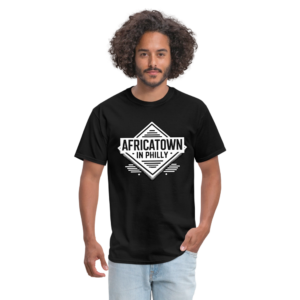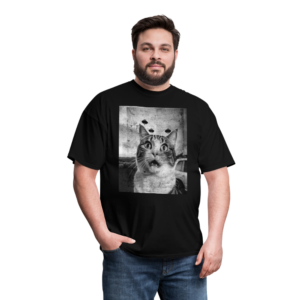Free shipping over $50 for the month of April using code aprilship
For millennia, humans have been omnivores, eating a diet that includes both plant and animal products. But what if humans were vegetarians instead? How would such a shift affect our biology, the Earth, and society? Exploring this scenario reveals fascinating insights into human biology, health, environmental sustainability, and cultural development.
The Biological Impact of a Vegetarian Human Species
If humans had changed as strict vegetarians, our biology would likely be different. Here’s how:
1. Digestive Adaptations
Our digestive system would resemble that of herbivores more than omnivores. Current humans have shorter intestines compared to herbivores, which limits our ability to break down fibrous plant material efficiently. As vegetarians, we might have developed longer intestines to extract more nutrients from plants. Our stomachs could also be more similar to ruminants like cows, potentially with multiple chambers for fermenting tough plant matter.
2. Dental Changes
Omnivorous diets require versatile teeth for chewing a variety of foods. If humans had always been vegetarians, our teeth might lack sharp canines designed for tearing meat. Instead, we would likely have more molars and flat, broad teeth for grinding fibrous plant material.
3. Vitamin B12 Dependency
Vitamin B12, crucial for nerve function and red blood cell production, is found almost exclusively in animal products. A vegetarian biology might have pushed humans to rely more on symbiotic gut bacteria or plant sources that synthesize B12. Alternatively, we might have developed different metabolic pathways to reduce or eliminate this dependency.
4. Brain Development
The consumption of meat, rich in proteins and fats, is believed to have played a role in the rapid growth of the human brain during development. Without it, our brain size and cognitive functions might have developed differently, possibly favoring efficiency over size.
Environmental Impacts of a Vegetarian Humanity
The environmental effects of an entirely vegetarian human population would be profound, especially considering the current challenges posed by meat production:
1. Reduced Greenhouse Gas Emissions
Livestock farming is a significant contributor to greenhouse gases, especially methane and carbon dioxide. A vegetarian human population would eliminate the need for large-scale animal agriculture, significantly reducing emissions.
2. Land Use Efficiency
A vegetarian diet requires less land to produce the same caloric value compared to a diet that includes meat. With fewer resources devoted to livestock, vast areas currently used for grazing and growing animal feed could be repurposed for forests or food crops, aiding biodiversity and combating deforestation.
3. Water Conservation
Animal agriculture consumes a tremendous amount of water. For instance, producing one pound of beef requires approximately 1,800 gallons of water. A vegetarian population would drastically reduce this demand, helping to alleviate water scarcity issues globally.
4. Ecosystem Balance
Eliminating human reliance on animal farming would reduce habitat destruction, pollution, and the overexploitation of certain species. This would likely lead to healthier ecosystems and more stable wildlife populations.
Social and Cultural Transformations
Human societies and cultures have long been shaped by their relationship with food. A vegetarian history would create a vastly different world:
1. Culinary Traditions
Food is a cornerstone of culture, and vegetarianism would profoundly influence culinary traditions. Regional cuisines might focus more on grains, legumes, fruits, and vegetables, with innovation centered around creating diverse flavors and textures from plant-based ingredients.
2. Religion and Ethics
Vegetarianism often aligns with ethical considerations about animal welfare. If humans were inherently vegetarians, many religious and philosophical systems might place stronger emphasis on the sanctity of all animal life, leading to widespread cultural norms against killing animals for any purpose.
3. Economic Shifts
Animal agriculture is a major global industry. In a vegetarian world, the economy would pivot toward plant-based farming, technology for crop production, and industries supporting vegetarian diets. Jobs related to livestock farming, butchery, and meat processing would be replaced by roles in agriculture and plant-based food innovation.
4. Health Systems
A global vegetarian population might experience lower rates of diseases linked to meat consumption, such as heart disease, certain cancers, and diabetes. However, there would also be challenges, such as ensuring adequate nutrition for all, particularly for nutrients like iron, zinc, and vitamin B12, which are harder to obtain from plant-based diets.
What If Humanity Switched to Vegetarianism Today?
While imagining humans as historically vegetarian is intriguing, the possibility of transitioning to vegetarianism now is equally significant. This change would have immediate and long-term impacts on health, the planet, and society.
1. Health Benefits
Studies consistently show that vegetarian diets are associated with lower risks of chronic illnesses. By embracing vegetarianism, populations could improve overall public health and reduce healthcare costs.
2. Environmental Rescue
Shifting to a plant-based diet is among the most impactful actions individuals can take to reduce their ecological footprint. Even partial vegetarianism, like adopting Meatless Mondays, could lead to substantial environmental benefits.
3. Economic and Social Resistance
Transitioning to a vegetarian society would not be without challenges. The meat industry is deeply ingrained in economies and cultures worldwide. Policies, education, and alternative food technologies, such as lab-grown meat, would play key roles in facilitating the shift.
A Vision for the Future
As we stand on the brink of environmental and societal challenges, considering vegetarianism isn’t just a thought experiment but a real possibility for a sustainable future. Whether driven by ethical considerations, environmental concerns, or health benefits, the choice to reduce meat consumption is growing in popularity.
While a completely vegetarian human history might not be feasible, the prospect of creating a vegetarian future could lead to a healthier planet and population. With advancements in agriculture, nutrition, and food science, the barriers to adopting plant-based diets are lower than ever.
By envisioning humanity as vegetarians, we gain valuable insights into how our dietary choices shape our bodies, cultures, and the Earth. Ultimately, the power to transform lies in the hands of individuals, communities, and policymakers working toward a more sustainable future.
This thought experiment shows that while history might have taken a different path, the future is still open to evolution—whether it’s biological, environmental, or societal. Every meal is a vote for the kind of world we wish to live in, and as we reimagine our diets, we might just reshape our destiny.
-

Voxel Art Read More Books Unisex Classic T-Shirt
$19.99 Select options This product has multiple variants. The options may be chosen on the product page -

Hungry and Humble Football Player Flapping Arms Touchdown Celebration Unisex Classic T-Shirt #philly
$19.99 Select options This product has multiple variants. The options may be chosen on the product page -

Africatown in Philly Phrase Unisex Classic T-Shirt
$19.99 Select options This product has multiple variants. The options may be chosen on the product page -

Vintage Funny Cat Selfie UFO Alien Invasion Unisex Classic T-Shirt
$19.99 Select options This product has multiple variants. The options may be chosen on the product page -

Vintage Philly Underdogs German Shepherds Unisex Classic T-Shirt
$19.99 Select options This product has multiple variants. The options may be chosen on the product page -

Voxel Art Southpaw Swagger Unisex Classic T-Shirt
$19.99 Select options This product has multiple variants. The options may be chosen on the product page
------------------------------------------------
We use AI GPT Chatbots to help with our content and may get some things wrong.
-------------------------------------------------